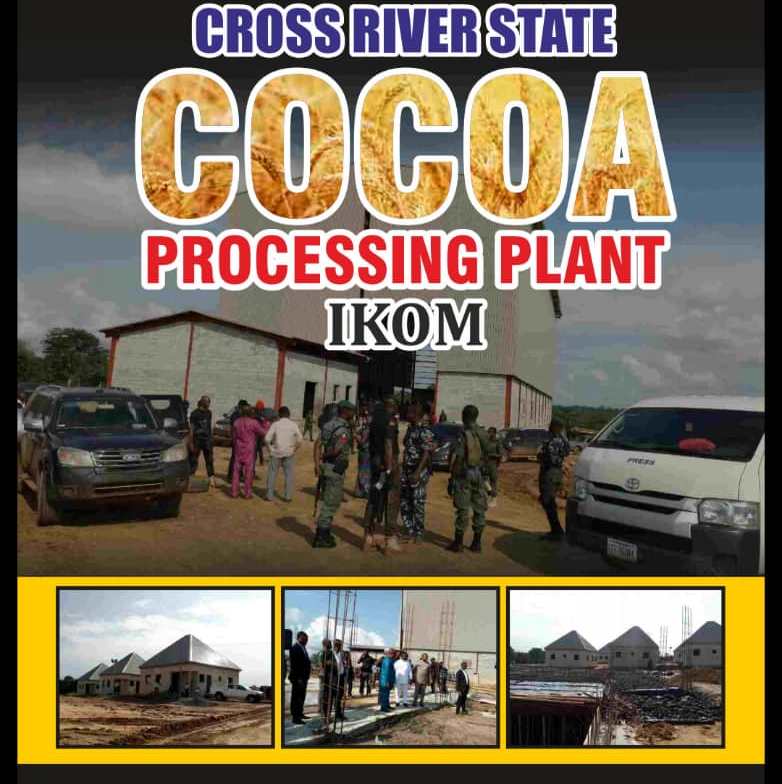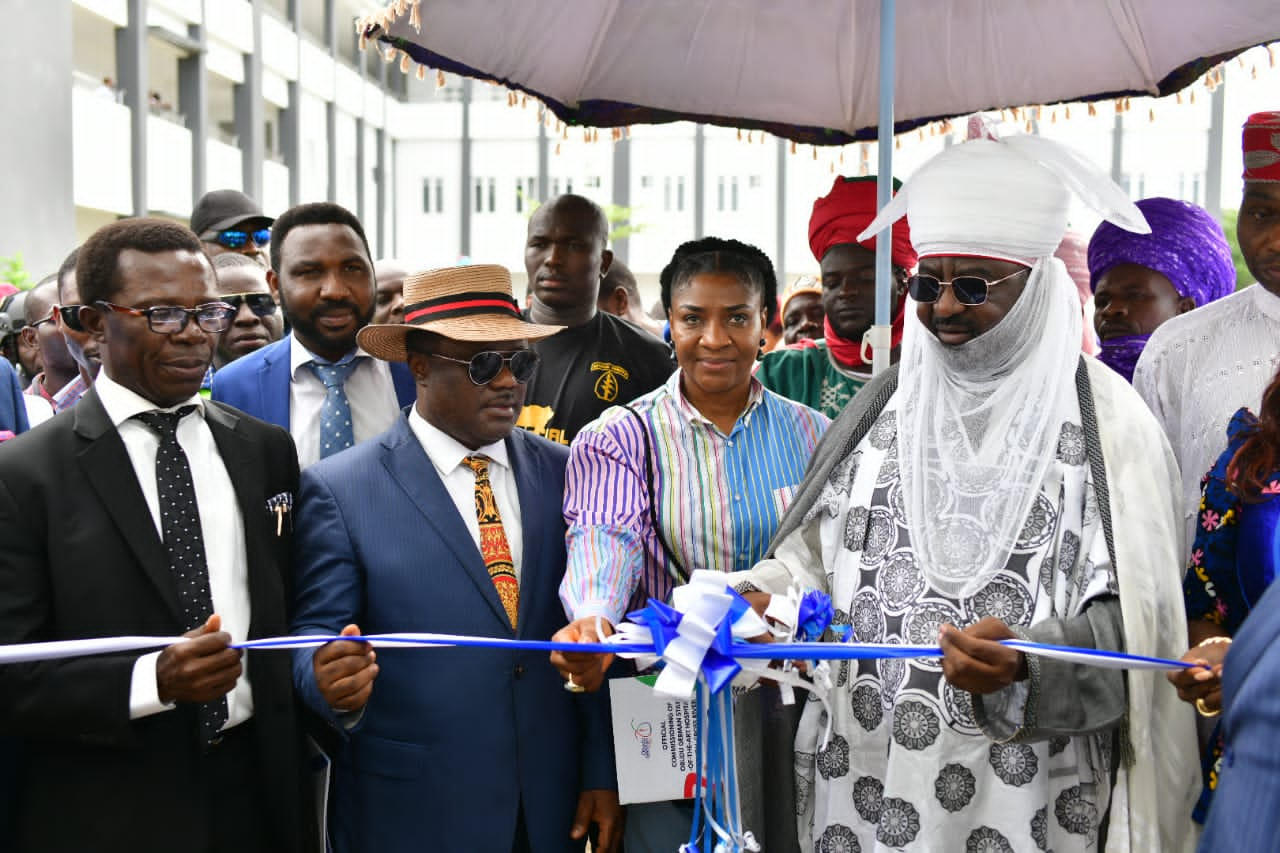Aggressive Industrialization: Ayade Unlocks Cross River Economy
 A careful observation reveals that advanced societies are heavily dependent on industries through the private sector. However, private sectors are not known to create industries. It is the state that creates industries and, subsequently, divests to private sector for purpose of sustainability. The reason is that, with the stringent bureaucracy and rigorous administrative process associated with the public sector, it is not economically ideal for a sovereign state or its subsidiary unit to run a business.
A careful observation reveals that advanced societies are heavily dependent on industries through the private sector. However, private sectors are not known to create industries. It is the state that creates industries and, subsequently, divests to private sector for purpose of sustainability. The reason is that, with the stringent bureaucracy and rigorous administrative process associated with the public sector, it is not economically ideal for a sovereign state or its subsidiary unit to run a business.
Governor Ben Ayade understands that the difference between advance countries and frontier societies is in their understanding of the factors propelling the engines of their economies. While the advanced societies believe that economic viability is the function of a formidable private sector through proliferate industries, the frontier societies believe that livelihood is dependent on periodic emoluments and wages which is why our economies in Africa are hugely dependent on white Collar jobs.
Sadly, the expansion of the public sector has limits and therefore cannot accommodate everyone. But the expansion in the private sector is limitless. As a matter of fact, the private sector can accommodate everyone because industrialization under the watch of the private sector is very dynamic through its backward and forward linkages. Backward linkage is a process where firms of semi finished products fall back to suppliers from agriculture. While forward linkage is a process where firm of semi finished products make supplies to firms of finished products. This process creates multi-level value for multi-engagements of the workforce.
However, with the advent of global economic integration, it becomes imperative for a nation or state to go into areas of comparative advantage. That does not mean frontier economies have their global integration relevance at the instance of agriculture only. Rather, nations and states especially those in recession with comparative advantages in Agriculture should start thinking of setting up agro-allied industries. This is where Ayade has gotten it right by the establishment of the Ultra Modern Cocoa Industry in Ikom.
It is interesting to know that Nigeria, mostly, through Cross River, is the fourth largest producer and the third largest exporter of cocoa in the world which may not be far from the reason why Governor Ben Ayade of Cross River State has decided to set up an Ultra Modern Cocoa Industry in the state. According to Wikipedia, aside the fact that Nigeria is rated as the fourth largest producer of cocoa in the world and the third largest exporter, the quality of her cocoa is, globally, considered the best because our cocoa bean weighs more in comparison with others. However, about 40% of the cocoa produced in Nigeria is from Cross River State, while the remaining 60% are shared among Ondo, Abia, Lagos, Ogun, Akwa Ibom, Delta, Ekiti, Oyo and Edo states. From global rating, Cote d’Voire is the largest producer of cocoa, followed by Ghana as second; Indonesia, third and, Nigeria, the fourth. In 2016/2017 crop year, Cote d’Voire, in West Africa, Produced 1.7million metric tones of cocoa beans, followed by Ghana with 858, 720 metric tones; Indonesia produced approximately 656, 817 and Nigeria came fourth with 236, 521 metric tones of cocoa beans.
The backward linkage of confectionery industries to factories of semi finished products of cocoa makes its global demand very high which accounts for reasonable percentage of the GDP of those frontier African economies that produce cocoa in large quantities. In 2016, Cote d’Voire produced 1, 472 million metric tones of cocoa beans which accounted for 17 percent of her GDP which is why locals in Cross River State see cocoa investment as a similitude of oil business. Cocoa passes through three stages before it gets to the finished product: from harvesting, it is processed into roasted cocoa beans; thereafter it is processed into cocoa powder, Cocoa Liquor or mass, Cocoa nib, Cocoa paste before they are finally lifted by confectionary industries to produce chocolate, Cadbury richoko, bournvita etc.
The Cocoa Processing facility has the capacity of crushing 30,000 metric tones of cocoa beans per anum which imposes huge demand on the farm production of cocoa. Consequently, the Cross River State Government, through the Department of Cocoa Development, has developed a trajectory plan of increasing production by acquiring more hectares of land across the 18 local governments of the state, just like the 3800 hectares acquired from Aki Osoba in Akamkpa to plant more cocoa: about million seedlings of cocoa have been raised and transplanted with the intention of raising more.
The Ikom Ultra Modern Cocoa Industry is expected to create employment opportunities for the teeming youth of Cross River State which will reduce pressure of expectation on public and civil service for employment. And because, it will engage many youth and put money in more hands, the horror of security tension and other vices, which are not functions of genetic peculiarity, but of unemployment and poverty, are expected to be drastically reduced which will further enhance systemic stability. And because of the revenue it will equally generate for the state, it is expected to shield the state from both international and national revenue shocks known as recession.
The Ikom Ultra Modern Cocoa Industry operates under a Special Purpose Vehicle (SPV) registered with the Corporate Affairs Commission as Cross River Cocoa Company Ltd, not as subsidiary or a promoter of any company, but as an independent company with a sustainability plan of proper divestiture to a third party structure as it assumes full operation in a no distant future. This is to keep it running even when new administrations come in. It is a government mediated private sector.
Nate Otaba is the Special Assistant, New Media to Governor Ben Ayade
He writes from Calabar, Cross River State
359,445 total views, 2 views today
Short URL: http://www.senatorbenayade.org/?p=6763




























